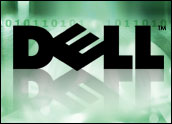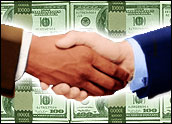
Two new reports say 2004 was a very good year for personal computer sales as demand for mobile machines drove double-digit growth worldwide.
The reports, from competing research firms IDC and Gartner, also said the year was especially good for Dell, which continued to rein atop the PC sales charts ahead of main rival Hewlett-Packard.
IDC put 2004 sales growth at 14.7 percent, including a 13.7 percent surge in the fourth quarter it said was sparked by small and medium sized businesses buying as well as consumer demand for notebooks and other machines.
Weak Ending
Gartner, which uses a slightly different method of counting, said PC sales rose 11.8 percent for the year, though it noted some weakness compared to forecasts in the U.S. and European markets as the year came to a close.
While both firms said U.S. consumer sales appeared weak in the fourth quarter, they suffered from comparison to a surge in sales at the end of 2003.
Both firms agreed that Dell solidified its hold as market leader in 2004. While it had battled back and forth with HP in the quarters after HP’s acquisition of Compaq boosted its total sales late in 2002 and early in 2003, Dell has consistently held the lead in recent quarters.
Gartner Vice President Charles Smulders said forces at work in the marketplace are playing directly into Dell’s low-cost, direct-to-market business model, which has proven the best equipped, at least among Western PC makers, to cut prices without hurting profits.
“In the fourth quarter especially, we saw falling component prices enable Dell to further lower prices and gain margin and market share,” Smulders said.
Businesses Drive Gains
According to the Gartner figures, Dell ended the year with a 16.4 percent share of the worldwide market, up from 14.9 percent in 2003. HP ended the year with 14.6 percent, the same level it had in 2003.
Rounding out the top five worldwide were IBM, Fujitsui and Acer. In the U.S., Dell enjoyed an even stronger grip on the market. At home, Dell had 30.3 percent of the market, compared to 18.4 percent for HP, 5.8 percent for Gateway, 4.7 percent for IBM and 3.2 percent for Apple.
IDC analyst Loren Loverde said Gateway has started to pick up market share on the strength of its purchase of eMachines, while Apple continues to draw attention for its cutting-edge design and its mobile devices, especially its iPod music player.
Meanwhile, some brands saw gains based on their geographic strengths. In Latin America, for instance, Gateway was a major beneficiary of the nearly 25 percent sales surge in the fourth quarter.
More Consolidation Ahead
IDC is predicting one more year of double-digit PC sales growth for 2005, saying sales should expand at least 10 percent. After that, sales expansion is expected to slow to single digits.
Loverde said continued business buying, especially in places like Europe and Asia, will help keep sales strong into 2005, with the replacement of older machines helping to sustain commercial sales even if economic growth is not particularly strong.
Meanwhile, many analysts predict the industry consolidation that began with IBM selling its PC line to China-based Lenovo Group will continue as companies realize they can no longer compete with streamlined U.S. PC makers and those in the Asia-Pacific region that enjoy starkly lower labor costs.
In fact, just weeks before word of the IBM deal was made public, Gartner predicted that three of the top 10 PC makers would leave the business within three years.
“The stress on PC vendors from operating on such low margins led to IBM’s exit,” Smulders said. Price pressure is only going to grow, he added, as Gateway exploits its eMachines savings and new notebook makers enter the market with bargain-priced offerings. “Expect further consolidation going forward.”
























































Social Media
See all Social Media